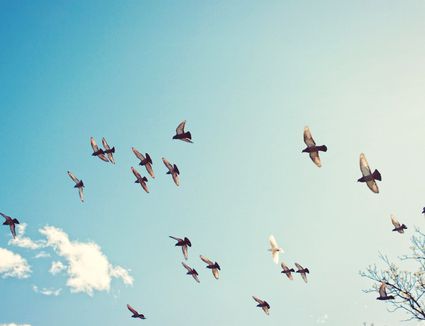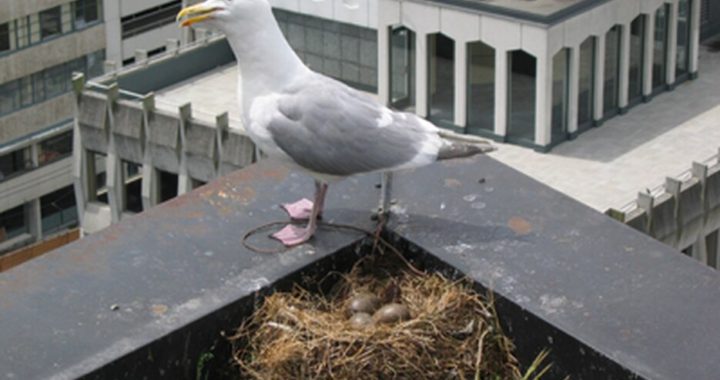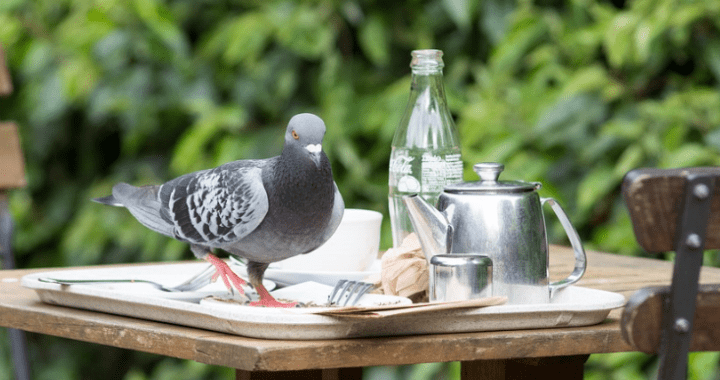
Birds are beautiful from a distance when they soar across the sky, but if they ever take up residence on your property in large numbers, you’d best be concerned. Not only can nesting pigeons and other birds cause damage to your structures, but they can also spread a number of diseases to humans. Here are three such serious diseases to watch out for if birds are nesting or roosting in your home or yard.
1. Histoplasmosis
Histoplasmosis is a fungal infection that affects the lungs and respiratory system in humans. Spores of the fungi that cause the disease may be present in bird droppings. If these droppings dry out and become airborne, you may inhale the spores as you stroll through your yard.
Although some people experience few to no symptoms after becoming infected with histoplasmosis, others become gravely ill. The disease is most serious in young children and the elderly. Symptoms, according to the Mayo Clinic, resemble those of a serious flu and include chills, headaches, a dry cough, chest pain, fever, joint pain, and a rash.
If histoplasmosis disseminates, which means it spreads outside your respiratory system, it can cause serious damage to your liver, central nervous system, and adrenal glands — often resulting in death. Mild cases do not require treatment, but more severe cases are often treated with anti-fungal medications.
To prevent histoplasmosis, always wear a face mask when cleaning up an area where birds have defecated. If you suffer from emphysema or an immune disorder, have someone else clean up the mess, and stay far away as they do so.
2. Salmonella
You may think of salmonella as the foodborne illness you can catch from eating undercooked chicken and eggs. Wild birds can carry this bacterial disease, too. The bacteria are present in the digestive systems and feces of infected birds. If you were to touch the feces and then touch your food, you could become infected. You could also become infected if produce from your garden comes into contact with bird feces.
Salmonella causes digestive systems such as nausea, vomiting, and diarrhea. These symptoms may last up to seven days. Most people do not require treatment, but your doctor may hospitalize you and prescribe antibiotics if you have bloody diarrhea, are over 65, have a weak immune system, or do not recover on your own within a week.
If you have birds on your property, protect yourself by always washing your hands well before eating. Try not to handle anything that may have touched bird feces with bare hands. Never drink water from outdoors, and inspect all garden produce for evidence of bird feces prior to consumption.
3. St. Louis Encephalitis
St. Louis encephalitis (SLEV) is a complex viral disease harbored by birds and mosquitoes. The mosquitoes pick up the virus when they bite infected birds, and then they pass the virus onto humans when they bite humans. The more birds you have on and around your property, the greater your risk of contracting SLEV from a mosquito bite.
Symptoms of SLEV include fever, headache, fatigue, dizziness, and tremors. Some cases progress to meningitis, which can be fatal. Between 5 to 15 percent of people diagnosed with SLEV pass away. There is no specific treatment for SLEV, but supportive therapies can help keep patients comfortable and hydrated.
We solve the bird problems before they nesting and roosting on our land, come to us for more solutions.



